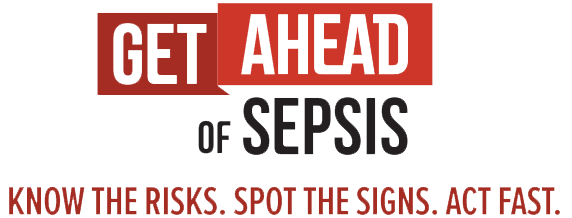September is Sepsis Awareness Month, which provides us an opportunity to shine a light on this life-threatening condition. Sepsis occurs when an infection triggers a chain reaction in patients' bodies, quickly leading to tissue damage, organ failure and even death. The Centers for Disease Control and Prevention (CDC) report that more than 1.7 million people get sepsis every year, with about 270,000 Americans dying from it. In fact, one in three patients who die in a hospital reportedly have sepsis.
The most frequently identified pathogens that cause infections turning into sepsis include Staphylococcus aureus, Escherichia coli and some types of Streptococcus. The four types of infections most often linked with sepsis are infections of the lungs; urinary track, skin and gut.
To help patients avoid sepsis, healthcare professionals should follow infection prevention best practices, including good hand hygiene and proper catheter removal. By preventing infections, healthcare professionals can prevent sepsis.
But healthcare professionals must also learn what signs to watch for that may indicate an infection has developed into sepsis. These include:
Confusion or disorientation
Shortness of breath
High heart rate
Fever, shivering and/or feeling very cold
Extreme pain or discomfort
Clammy or sweaty skin
Healthcare professionals must also know their facilities guidelines for diagnosing and managing sepsis as any delays in recognition and treatment can cause significant harm.
Nursing Home Infection Risk
One facility type where sepsis rates are high is nursing homes, which is not surprising considering sepsis is most common in elderly individuals. It's also not a surprise when you consider that, as a Kaiser Health News (KHN) report notes, "Poor infection control ranks among the most common citations in nursing homes. Since 2015, inspectors have cited 72 percent of homes nationally for not having or following an infection control program."
To help patients and their families choose a nursing home, KHN conducted an analysis of Nursing Home Compare data available from the Centers for Medicare & Medicaid Services (CMS). Using this data, KHN developed tool that tracks infection-related deficiencies and staffing levels for nursing homes contracted with Medicare and/or Medicaid. Users of the tool can narrow their search down by state and then do a keyword search for a nursing home by name or city. Access the nursing home search tool.
Improve Sepsis Prevention
One approach healthcare organizations can take to jumpstart their sepsis prevention efforts is to review the clinical practice guides for the management of sepsis ("Surviving Sepsis Campaign: International Guidelines for Management of Sepsis and Septic Shock: 2016"), which were developed by the Surviving Sepsis Campaign and most recently updated in 2016.
But what will ultimately make a bigger difference is an unwavering commitment to preventing infections. As noted earlier, you can't have sepsis without an existing infection. Infection Control Consulting Services (ICCS) is a national provider of infection prevention and control services for nursing homes, hospitals and many other facility types. Contact ICCS today to learn more about how its team of expert infection prevention consulting service providers can assist your organization.




